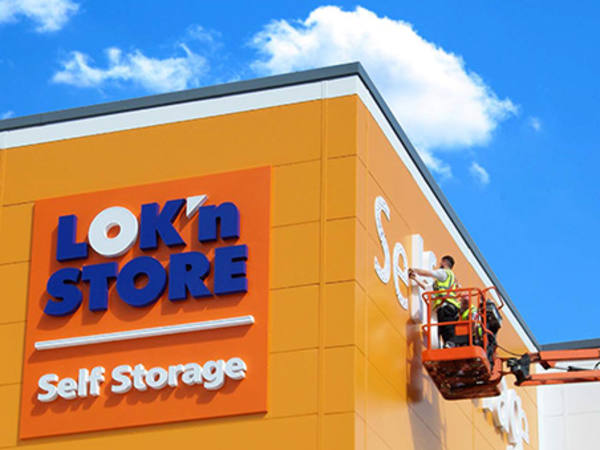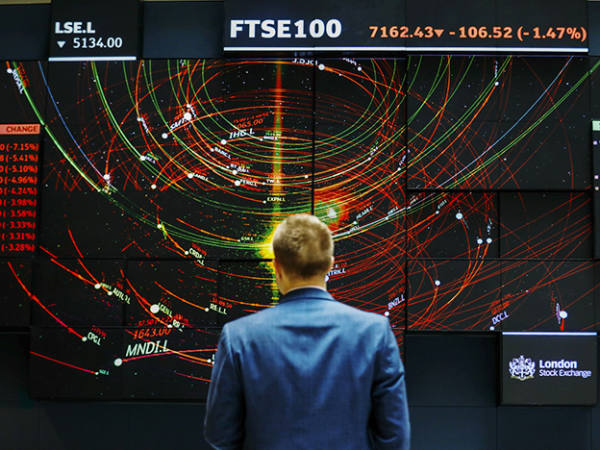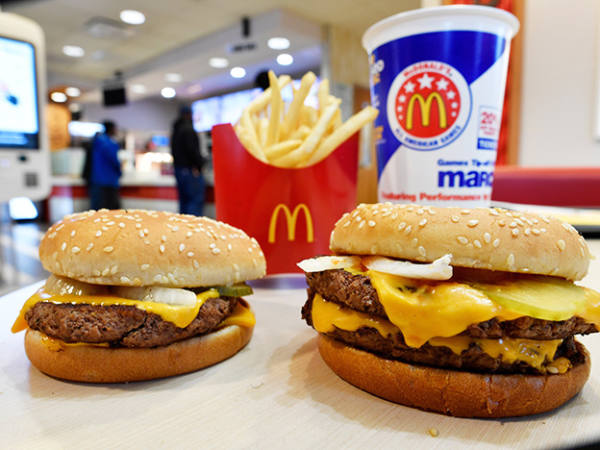- Gamestop and other “meme stocks” beloved by the Reddit community have soared this year
- Their rise was foreshadowed by a popular forum where Redditors ‘trade’ internet memes
It’s a Wednesday afternoon in May and I’m trying to decide whether an image of a startled Pikachu or a screenshot of Matt Hancock running away from a journalist is more likely to go viral.
I’m on r/MemeEconomy, a forum on the social media site Reddit that also serves as a fake stock market for internet memes. When I choose my meme, I will enter “buy” in the comments and a bot that monitors the forum will register my investment. It will also track how many other forum members buy in, assigning the meme a share price that fluctuates according to the level of demand.
The money is fake, but the stakes feel somewhat real. When I joined the forum I was given a basic fund to start me off; from now on, the performance of my portfolio will be reported publicly on a forum of 1.4m meme enthusiasts.
I have my core valuation metrics to assess which meme has the most promising growth prospects. Is it versatile enough to be reused in a range of situations? Is the pop culture reference popular, without being too mainstream? Does it make me laugh?
The Pikachu meme seems to tick most of the boxes. But it also follows a familiar format, resembling the already hugely popular Drake Hotline Bling meme.
Our government’s health secretary, on the other hand, is one of a kind. The image has been lifted from a Sky News report broadcast only days earlier, which has already gained a lot of traction on social media. I’m more convinced by this meme’s competitive moat.
I type “buy”, hit enter, and wait for my investment to be processed.
‘Part of our culture’
My grandparents grew up during the Golden Age of Hollywood and the birth of rock and roll. My parents came of age as alternative subcultures, from hip-hop to Britpop, took over the world. My generation invented the internet meme.
When thousands of years of culture are only a click away, why create something from scratch? With memes, the fun lies in appropriating the historic and cultural touchstones of previous generations and giving them a meaning that is more relevant today.
Originally propagated through niche internet discussion sites, memes have become an omnipresent feature of the web. Creating good memes is now a form of social currency, and sharing them is a universal social activity. r/MemeEconomy, where since 2016 members have publicly ‘listed’ their own meme templates for approval by the rest of the community, serves to facilitate that exchange.
“We were seeing that memes were becoming part of our culture,” says Reddit user Noerdy, co-creator of r/MemeEconomy, who did not want to give their real name. “We were interested in taking an idea as silly as memes and just taking it seriously.”
Turning the stock market into a meme
But r/MemeEconomy is not just a forum for discussing funny images of the health secretary. Engagement in the community is filtered through the language of investing, from the invocations to “BUY BUY BUY” newly floated memes, to the ‘tax’ that is automatically charged on capital gains.
The forum’s webpage is decorated with images of Wall Street and Warren Buffet; the performance of investments is tied to the movements of the S&P 500. r/MemeEconomy, in effect, transforms the stock market into a meme: it takes something previous generations took very seriously and turns it into a joke.
It is hardly what Margaret Thatcher envisioned when she liberated the market economy in the 1980s, inspiring ordinary people who hoped the democratisation of investing would mean more businesses being run in their interests, and capital flowing towards job creation and innovation.
But the fact that 1.4m Redditors apparently now treat the stock market as an absurd joke can probably be traced back to the shortcomings of these ideals. By the time I was born in the late 1990s, amateur traders were instead pouring their savings into any badly-run company with a dotcom in its name. By the time I was in primary school, Wall Street bankers — some of the strongest advocates of the ideals promoted by Thatcher — were packaging up subprime mortgages and passing them off as top-grade investments.
When that house of cards collapsed into a global financial crisis, it was not just investors left counting their losses: among the knock-on effects was a rise in our tuition fees, followed by diminished job prospects at the end of university. Many young people were left with the sense that markets had too much power over our lives, despite apparently bearing little relation to the real economy.
That sense of bitter irony provided fertile ground for memes. One of the most popular in recent years has been the “stonks” meme, a surreal image of a besuited man standing in front of an indistinguishable array of stock symbols. As one market commentator has observed, it is typically posted to deride anyone “making trivial gains or an investment that could be chalked up to luck”.
r/MemeEconomy also looks to undermine those who believe they can profit by successfully scrutinising fundamentals. While initially the subreddit encouraged such value-orientated investing, increasing the price of memes according to the number of upvotes (‘likes’) they receive, it has since switched to what Noerdy calls a more “Keynesian” model.
The success of an investment is now determined principally by the level of demand for a meme; rather than predicting which memes will be the most valued by the wider Reddit community, investors are incentivised instead to simply focus on those that other members of r/MemeEconomy are buying into. The herd mentality is stoked by an ‘autosell’ mechanism that forces investors to dump their stock four hours after buying, eventually depressing the price of older memes and discouraging long-term investing in favour of the newest and hottest listings.
Enter r/WallStreetBets
For most of r/MemeEconomy’s lifetime, no investment bankers would have been troubled by anonymous Redditors poking fun at them on niche forums like this. But that all changed this year.
If memes can be traded like stocks, why not trade real stocks like memes? Members of r/WallStreetBets, another subreddit, shook up the investing world in January when they decided to do just that.
The forum’s members, who communicate largely through memes based on Hollywood movies, appeared to decide en masse that they could turn failing companies into real-life stonks. High street retailer Gamestop (US:GME), previously written off as doomed to failure in the internet age, saw its shares rise about 3,000 per cent in less than a month. The share price of another r/WallStreetBets favourite, debt-laden cinema chain AMC (US:AMCX), has soared about the same amount since the start of the year.
And the fun has not stopped with meme stocks. In the form of non-fungible tokens, memes themselves are also being sold for real money, with classics like Bad Luck Brian attracting bids of about £25,000. Dogecoin, a cryptocurrency based on a meme, has rapidly become one of the hottest assets on the markets. That’s despite the fact that the coin, which pitches itself as “the fun and friendly internet currency”, has extremely limited use in the real world.
Like the founders of r/MemeEconomy before it, r/WallStreetBets showed how markets can be manipulated simply by appropriating the laws of supply and demand; professional short sellers that were betting against the stonks’ dismal fundamentals have been left nursing billions in losses.
A paradigm shift?
Back on r/MemeEconomy, the autosell on my investment in the UK health secretary has kicked in, just before the meme hit a value of 118 meme coins — representing a raw return of 18 per cent. Pikachu, which has attracted no investors since listing, still sits at the IPO price of 100 meme coins.
It looks like my valuation screen was successful. But my satisfaction is short-lived; the growth of my investment has been dwarfed by a different meme of a shocked guinea pig, which besides drawing more investors has also acquired about 5,000 upvotes, compared to Hancock’s 12.
I am not the only person disappointed to see my portfolio significantly lag the highest-growth meme assets this year. Goaded on by meme enthusiast Elon Musk, the value of dogecoin has increased more than 700 times as much as the FTSE 100 since January.
Such distortion in the markets has irked investors who entered the game long before the Reddit crowd. Those who had been calling for greater retail participation in the markets did not foresee this outcome.
But millennial traders have only been able to move markets so dramatically because such a large number of them have started actively investing. Spurred on by online forums and commission-free trading apps that lowered the barriers to entry, retail trading volumes have doubled in just two years, from 10 per cent of the total in 2019 to more than a fifth in 2021, according to investment bank Piper Sandler. The rise of young investors may actually represent the democratisation of finance that retail traders have been demanding for years.
“The Thatcher dream of creating a shareholding democracy was welcomed but was highly skewed towards institutions,” says Duncan McCann, a senior researcher at the New Economics Foundation who focuses on digital platforms. “Now investors have the power of trading platforms and social media to take on the established players.”
Many retail stockpickers will nonetheless be hoping that the market moves of 2021 are just a blip, despite the resurgence of AMC and other meme stocks in recent weeks. Whether or not that turns out to be the case, we can be sure of one thing: internet memes are here to stay. And as long as Reddit traders keep playing the markets, memes could continue to influence the world of business and finance.
As 30-year-old crypto mogul Justin Sun recently told Bloomberg, we may be seeing a “paradigm shift”, where investing is no longer driven by fundamentals, but internet communities.
For entrepreneurs like himself looking to rally Gen Z and millennial investors, he added, “meme is the answer”.









